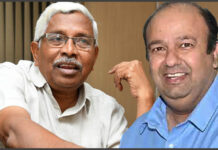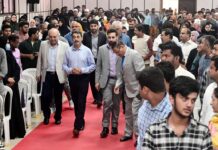
On Monday, the Supreme Court of India upheld the Union government’s decision to abrogate Article 370 of the Constitution, which granted special status to Jammu and Kashmir. The verdict, delivered by a five-judge Constitution bench led by Chief Justice of India DY Chandrachud, affirmed the legality of the government’s action.
Prime Minister Modi Applauds Decision
Prime Minister Narendra Modi took to the social media platform X to applaud the Supreme Court’s decision. He characterized it as a “beacon of hope, a promise of a brighter future, and a testament to our collective resolve to build a stronger, more united India.” According to the PM, the ruling represents a “resounding declaration of hope, progress, and unity” for the people of Jammu, Kashmir, and Ladakh.
Article 370: Temporary Provision
Chief Justice Chandrachud, while reading the judgment, underscored that Article 370 was a temporary provision, designed as an interim arrangement until the J&K Constituent Assembly could ratify the Indian Constitution. He emphasized that challenging every decision made by the Centre on behalf of a state could bring the administration to a standstill.
Presidential Rule and Irreversible Actions
The apex court dismissed the argument that the Union government couldn’t take irreversible actions in the state during Presidential rule. The court reasoned that Jammu and Kashmir did not retain sovereignty when it joined the Union of India.
Article 370: Constitutional Integration
The court affirmed that Article 370 was intended for the constitutional integration of Jammu and Kashmir with the Union, not for disintegration. It ruled that the President could declare Article 370’s cessation, and the concurrence of the state government was not required for applying all provisions of the Constitution under Article 370(1)(d).
Election Commission Directive
The Supreme Court directed the Election Commission to conduct Jammu and Kashmir Assembly elections by September 30, 2024. In light of the Centre’s commitment to restoring statehood to Jammu and Kashmir, the court instructed that statehood should be reinstated as soon as possible.
16 Days of Hearings Conclude
After 16 days of hearings, the Supreme Court reserved its judgment on September 5. The central government, represented by Attorney General R Venkataramani and Solicitor General Tushar Mehta, defended its decision to abrogate Article 370, asserting there was no “constitutional fraud” in repealing the provision that accorded special status to the erstwhile state of Jammu and Kashmir.
Argument and Counter-Argument
Senior advocate Kapil Sibal, representing the petitioners, contended that Article 370 was no longer a temporary provision and had assumed permanence post the dissolution of the Constituent Assembly of Jammu and Kashmir. He argued that Parliament could not have declared itself the legislature of J-K to facilitate Article 370’s abrogation, as it wasn’t authorized by Article 354 of the Constitution.
August 5, 2019 Announcement
On August 5, 2019, the Central government had announced the revocation of Jammu and Kashmir’s special status under Article 370 and the bifurcation of the region into two union territories. The recent Supreme Court decision has now cemented the constitutional validity of this significant move.





